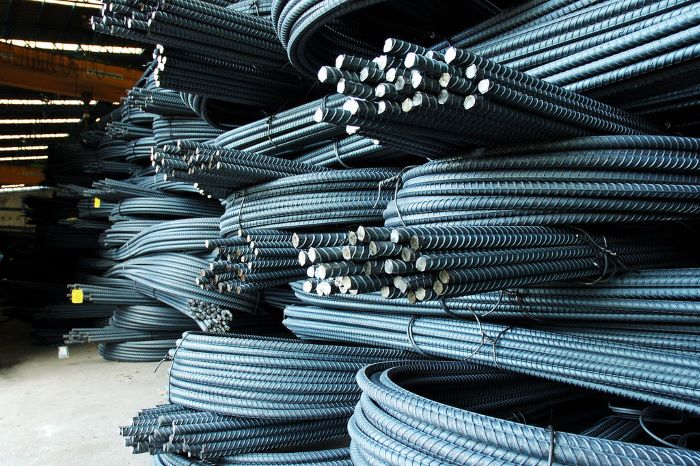It’s important to evaluate Pakistan’s current economic situation as we commemorate ChatGPT’s one anniversary, paying particular attention to the country’s steel and iron sector. One significant element that must be considered is the nation’s shifting costs for steel and iron rod. The purpose of this article is to present a thorough examination of the variables affecting these pricing, their impacts on different industries, and possible future changes. Let’s read below”Saria Rate Pakistan Today Steel Iron Rod Price”
The Importance of Steel and Iron in Pakistan:

Steel and iron are essential to the construction and manufacturing sectors and have a significant impact on a country’s economic development. Steel and iron are always in demand in Pakistan due to the country’s continuing infrastructure initiatives, growing urbanization, and expanding population. As a result, a variety of businesses are significantly impacted by notable fluctuations in saria rates.
Factors Influencing Saria Rate Pakistan Today Steel Iron Rod Price:
Global Steel Market Trends:
Because of the tight ties between the global steel market, changes in world prices directly affect the price of steel and iron rods in Pakistan. Trade disputes, geopolitical events, and the overall supply and demand in the global steel market are some of the variables that affect price volatility.
Raw Material Costs:
Coal, scrap metal, and iron ore are some of the basic ingredients used to make steel. Changes in the price of various raw materials can have a big impact on the overall cost of making steel. Variations in the price of commodities globally and disturbances in the supply chain may result in elevated expenses for steel producers, thus impacting saria rates in Pakistan.
Currency Exchange Rates:
The price of imported raw materials and completed steel products is directly impacted by the exchange rate between the Pakistani Rupee and the major global currencies, especially the US Dollar. Increased import expenses could lead to a devaluation of the currency, which would raise domestic saria rates.
Domestic Demand and Supply:
The balance between local supply and demand is a major factor affecting the price of saria in Pakistan. A rise in steel demand, particularly in the building industry, could result in price increases. However, something in excess could cause the price to drop. Policymakers and industry players must comprehend the characteristics of the home market in order to effectively regulate saria rates.
Government Policies and Regulations:
The steel business is greatly impacted by laws and regulations from the government. Tariffs, import/export laws, and trade policy affect the cost structures of steel businesses, which in turn affects saria rates. The stability of steel prices may also be influenced by government programs and subsidies.
Current Scenario of Saria Rates in Pakistan:
The cost of iron and steel rod in Pakistan as of [date] is [provide current rates]. Compared to the prices observed, this shows a [% increase/decrease] (include a reasonable time interval, such as one year ago). The current situation is the result of the following factors:
Global Steel Market Trends:
International steel prices have surged as a result of the continuous global economic recovery and the rising demand for steel in major economies. The present prices of saria are partly due to this tendency, which has unavoidably raised the price of steel in Pakistan.
Raw Material Costs:
It has been observed that there are notable variations in the price of basic resources like coal and iron ore. Due to their growing production costs, Pakistani steel producers are under increasing pressure to raise saria prices, which they then pass on to customers.
Currency Exchange Rates:
One illustration of how changes in exchange rates have impacted the cost of imported raw commodities is the depreciation of the Pakistani Rupee relative to the US Dollar. Due to its reliance on imports, the steel industry is susceptible to fluctuations in exchange rates, which could impact the saria rates in the nation.
Domestic Demand and Supply:
Pakistan is experiencing a building boom driven by infrastructure development projects and urbanization, which has resulted in a high demand for steel. The current high rates of saria are a result of the increased demand and difficulties in preserving a balance between supply and consumption.
Government Policies and Regulations:
The market has benefited from government attempts to assist the steel industry, such as infrastructure projects and investment incentives.
Impact on Various Sectors:
- Construction Industry: Iron and steel rods are mostly sold in the building sector. In addition to having an immediate impact on building costs, changes in saria rates can also have an impact on the scope and schedule of infrastructure projects. Consequently, employment, economic expansion, and the general development environment may be impacted.
- Manufacturing Sector: Steel is an essential component of many manufacturing industries, especially those that produce machinery and equipment.
- Real Estate: There is a close relationship between the building and real estate sectors. Shifts in saria rates could affect building costs overall, which could therefore affect property values and the affordability of housing. This has broader ramifications for the real estate industry and the financial industry.
Future Trends and Recommendations:
- Global Economic Recovery: Predicting future trends requires keeping an eye on how the global economy is recovering in relation to steel prices. Steel will probably be in strong demand once economies stabilize, which could result in higher saria rates. Decision-makers and business partners should anticipate these developments and put preparations in place to lessen associated issues.
- Currency Risk Management: It is essential to implement efficient risk management techniques due to the influence that currency exchange rates have on steel prices.
- Enhanced Domestic Production: Expanded Inward Creation A more adjusted market interest situation might come about because of expanding homegrown steel creation. To keep a hearty and cutthroat business, this might involve lessening administrative deterrents, expanding creation effectiveness. And offering impetuses for new interests in steel fabricating offices.
Conclusion:
Changes in both homegrown and global business sectors, cautious thought and key arranging are essential. Together, policymakers, business chiefs, and other closely involved individuals need to resolve the issues welcomed on by fluctuating Saria rates. Thus, this will propel the country’s general success and advancement. I hope you like reading ”Saria Rate Pakistan Today Steel Iron Rod Price”.

I am Alex from TechBlew, your go-to source for the latest information on mobile prices and much more. With over 7 years of experience in the tech industry and a degree in Computer Science, I am dedicated to providing you with accurate, up-to-date, and comprehensive data. As a passionate tech enthusiast and industry expert, I strive to bring you detailed reviews, price comparisons, and the latest trends in mobile technology. Stay connected with TechBlew for reliable insights and information.
